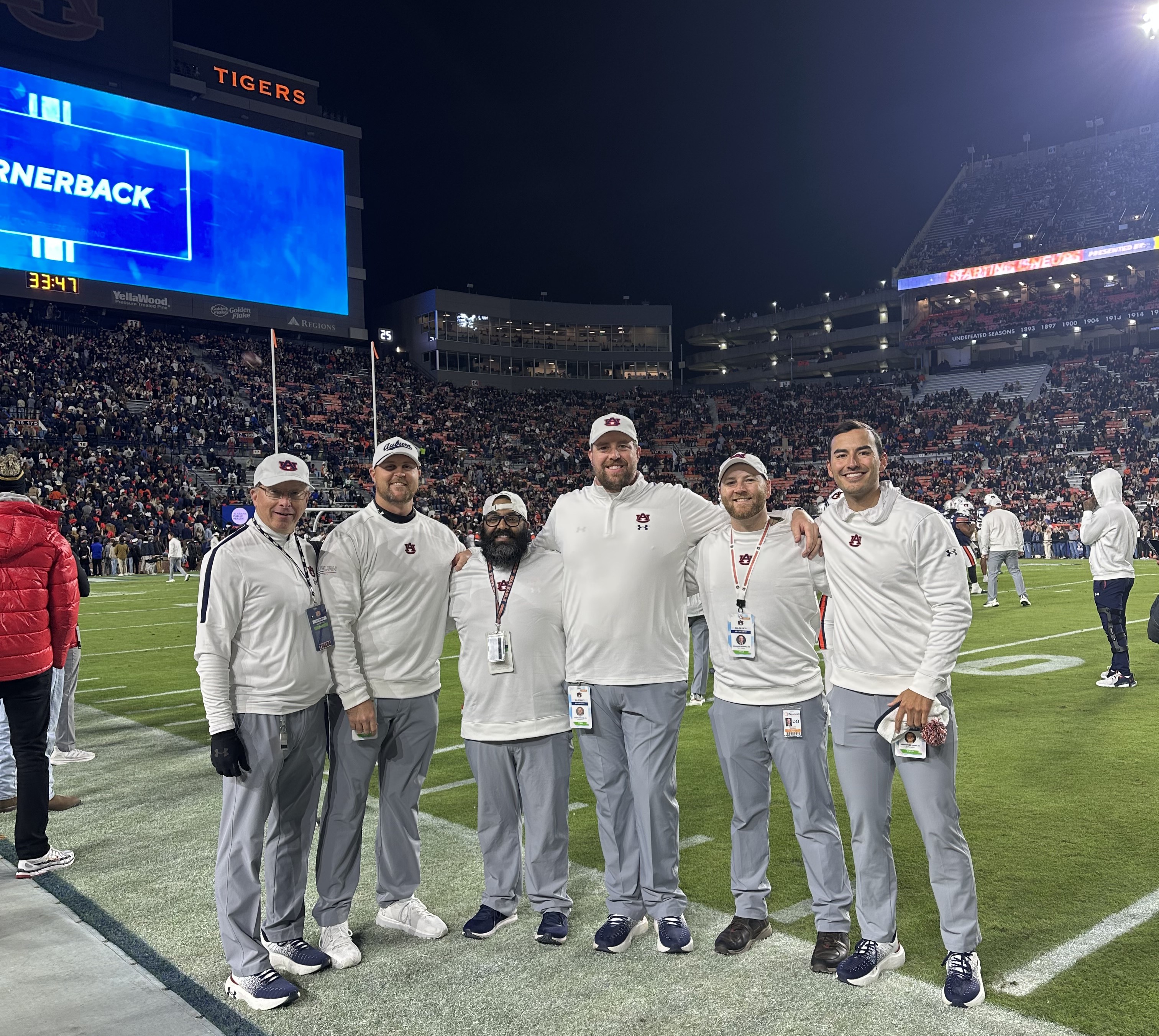
The Auburn University football team physicians. Dr. Sprouse is third from right.
Sideline medicine requires a unique blend of clinical expertise, rapid decision-making, and seamless teamwork. In a recent episode of "VCOM: Beyond the White Coat," Brett Sprouse, DO, MBA, CAQSM, FAOASM, discussed the realities of working as a sideline physician and the vital role sports medicine plays in keeping athletes safe in high-pressure environments.
Dr. Sprouse, an assistant professor of Sports Medicine and OMM at VCOM-Auburn, currently serves as the associate team physician for Auburn University and the team physician for Tuskegee University. He outlined what a typical game day looks like for a sideline physician—beginning hours before kickoff with pre-participation evaluations, taping, and stretching, followed by on-the-fly assessments and collaboration throughout the game.
“Football is very different,” Dr. Sprouse explained. “I’m usually getting here two and a half hours before kickoff. There’s more game day prep, more athletes, more coordination—it’s a whole operation.”
This level of preparation underscores the seriousness with which sports physicians approach their roles. As Dr. Sprouse put it, “You can’t just show up when the game starts. You have to be physically, mentally, and emotionally prepared to respond the moment something happens.”
Dr. Sprouse discussed the essential skills physicians must develop to be effective in an athletic setting. These include musculoskeletal assessment, emergency response, confident communication, and the ability to remain calm in high-stakes situations. He emphasized the importance of preparation and trust in one’s training when responding to critical injuries on the field.
“When a serious injury happens, you're almost working like an emergency physician,” he said. “You have to evaluate, triage, and decide—fast.”
Equally important is collaboration. Dr. Sprouse highlighted the teamwork involved in sideline care, noting that athletic trainers, EMTs, and coaching staff all play integral roles. From hand signals to sideline huddles, coordination is key.
“One of the first things I do is check in with the athletic trainer and the EMS team,” he shared. “We use common hand signals in case we can’t yell across the field. It’s all about preparation.”
Dr. Sprouse reflected on impactful moments from his career, including times when urgent care changed the trajectory of an athlete’s health. He also offered advice for medical students interested in sports medicine: Get involved early, seek shadowing opportunities, and build relationships with sports medicine professionals. “There’s no substitute for hands-on experience,” he added.
To hear the full interview with Dr. Brett Sprouse, check out the episode on "VCOM: Beyond the White Coat."
